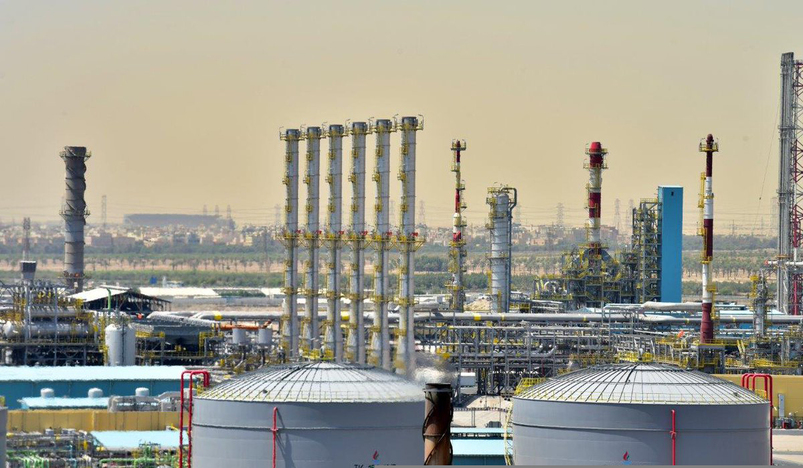
Oil Byproducts
The Clean Fuels Project (CFP) is one of the most significant and largest projects in the history of the Kuwaiti oil sector since it is widely expected to change Kuwait's status and future, and place it among major exporters of high-quality and eco-friendly products.
The mega and strategic project comes within the framework of Kuwait's endeavor to become a regional economic attraction hub.
Kuwait's great significance to the project was manifested by the presence of HH the Amir of the State of Kuwait Sheikh Nawaf Al-Ahmad Al-Jaber Al-Sabah and HH the Crown Prince Sheikh Mishal Al-Ahmad Al-Jaber Al-Sabah in the inaugural ceremony of the state-owned Kuwait National Petroleum Company's (KNPC) biofuel project at Mina Abdullah Refinery on March 22.
The project is a historic milestone that would unquestionably shore up Kuwait's presence as an influential and competitive state able to fulfill strict requirements and conditions in various world markets.
This strategic project expands and upgrades Mina Abdullah and Mina Al-Ahmadi Refineries and boosts Kuwait's global position in the oil refining industry. In addition to advanced conversion capabilities, the two refineries' operational excellence, reliability and safety performance are greatly upgraded. Energy efficiency and environment protection are also greatly enhanced. Their clean products conform to US, European and Asian specifications, including Euro-4 and Euro-5.
Some 199 companies from 23 countries participated in the manufacturing of equipment and technology used in the implementation of this mega project.
In this context, KNPC's Deputy CEO for Administrative and Commercial Affairs and Official Spokesman Ahed Al-Khurayif said due to global oil industry advancement and variables in different environment requirements locally and internationally, the company has carried out its Clean Fuel Project that has helped revamp product specifications in line with the required global standards.
Speaking to KUNA, he said the project reflects the company's general strategic vision to become one of the most competitive and advanced refining companies around the world, and manifests the optimal usage of the country's oil resources as one of the top strategic goals of the Kuwait Petroleum Corporation (KPC).
The project is globally unique since the company managed to carry out its huge works at the existing refineries while, at the same time, carrying on production and fulfilling relevant obligations towards its customers both at home and abroad, he said.
He estimated that the capex of the Clean Fuels Project hit KD 4.68 billion (around USD 15.2 billion), considering the financing process as the largest in the history of Kuwait's oil industry. The company's official elaborated that the KPC funded 30 percent of the project's capex, while the remaining 70 percent was bankrolled out of foreign financing sources.
Owing to the mammoth size of this project, it was divided into three main parts, with each part having been executed by a consortium of international companies, Al-Khrayif pointed out.
The number of new manufacturing units carried out as part of the project at the two refineries hit 76; divided into 39 production units, 37 service units, in addition to the revamping of 30 units involving seven production units and 23 service units, he said.
Following the successful completion of the project, the refining capacity of Mina Abdullah and Mina Al-Ahmadi refineries has surged to 454,000 and 346,000 barrels per day (bpd) respectively, the official remarked. Thus, this 800,000-bpd quantity, together with the expected 600,000-bpd production capacity of Al-Zour oil refinery, will take the refined oil total up to 1.4 million bpd, thus achieving the best value added and highest possible revenue of hydrocarbon resources, he boasted.
One of the main aims of the project is to boost the conversion capacity of the company's refineries by means of converting heavy low-quality products into high-quality ones.
The products meet Euro-4/Euro-5 specifications. Therefore, the environmental impact is greatly reduced with much less content of SOx, NOx and other pollutants. For example, sulfur content in gasoline will be cut down from 500 ppm into 10 ppm, and in gasoil from 5,000 ppm into 10 ppm, he added.
Furthermore, the KNPC is now prepared to produce ship fuel oil (Bunker fuel), which contains 0.5 percent of sulfur, in line with the requirements of the International Maritime Organization (IMO) put in place in 2020, he elaborated.
On job opportunities created by the project, Al-Khurayif said the Clean Fuels Project is one of the strategic projects that serve Kuwait's 2035 vision by providing Kuwaiti nationals with job opportunities.
Since it was launched, the project has now created around 800 jobs for Kuwaiti nationals, and developed their capabilities and skills, he added.
The project is also expected to create more jobs and promote local economic development, based on relevant mechanisms for maintenance and service contracts, he said, noting that nationals must make up at least 30 percent of workforce per contract.
Internal and external training courses were held for some 650 newly recruited employees, added the KNPC's Deputy CEO for Administrative and Commercial Affairs and Official Spokesman.
On the importance of the project to the national economy, he expounded that local spending was one of the key aspects of the project, with its contractors having spent a total KD 1.1 billion (around USD 3.57 billion) at the local market during all execution phases.
As for environmental significance, he said the company's products meet the strictest global environment specifications, and the project meets the local power plants' needs of clean low-sulfur fuel, thus reducing environmental hazards.
On major difficulties and challenges the project faced, he said the Coronavirus (Covid-19) pandemic was a key challenge, given that it had hit the entire world at a time when the project was almost done.
(QNA)
.jpg)
Qatar Secures Place Among the World's Top 10 Wealthiest Nations
.jpg)
Hamad International Airport Witnesses Record Increase in Passenger Traffic

Saudi Arabia: Any visa holder can now perform Umrah

What are Qatar's Labour Laws on Annual Leave?
Leave a comment